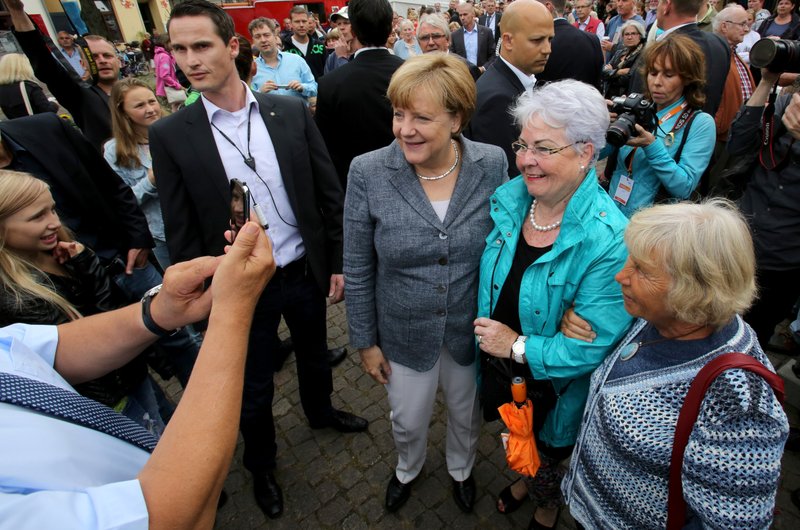BERLIN -- A nationalist anti-immigration party performed strongly in a German state election Sunday in the region where Chancellor Angela Merkel has her political base, overtaking her conservatives to take second place.
The 3-year-old Alternative for Germany, or AfD, won 20.8 percent of votes in the election for the state legislature in Mecklenburg-Western Pomerania. Merkel's Christian Democrats polled 19 percent.
The center-left Social Democrats, who led the outgoing state government in a coalition with the conservatives, remained the strongest party, with 30.6 percent support.
Economically weak Mecklenburg-Western Pomerania, in Germany's northeastern corner, is home to 1.6 million people and is a relative political lightweight. It is, however, the state where Merkel has her parliamentary constituency, and Sunday's regional vote was the first of five before a national election expected next September.
National Alternative for Germany leader Frauke Petry celebrated "a blow to Angela Merkel." Local party leader, Leif-Erik Holm told supporters: "Perhaps this is the beginning of the end of Angela Merkel's chancellorship today."
Merkel's refugee policies were a prominent issue in the campaign for Sunday's election, which came a year to the day after she decided to let in migrants from Hungary. Germany registered more than 1 million people as asylum seekers last year.
New arrivals in Germany have slowed drastically this year. Still, New Year's Eve robberies and sexual assaults in Germany blamed on foreigners, as well as two attacks in July carried out by asylum seekers and claimed by the Islamic State group, have fed tensions.
Merkel has stuck to her insistence that "we will manage" the migrant crisis."
"This result, and the strong performance of AfD, is bitter for many, for everyone in our party," said Peter Tauber, her Christian Democrats' general secretary.
He said the state government's positive record took a back seat for many voters, "because among a recognizable part, there was an explicit wish to voice displeasure and protest, and we saw that particularly strongly in the discussion about refugees."
Merkel has yet to say whether she will seek a fourth term next year.
"She is, in people's perception, personally responsible for the border opening, and she has to deal with that," political science professor Karl-Rudolf Korte told ZDF television.
The state has been run for the past decade by the parties that currently run Germany. Popular Social Democratic governor Erwin Sellering has governed with Merkel's party as his junior partner. Both parties lost support compared with the previous state election in 2011.
Alternative for Germany is now represented in nine of Germany's 16 state legislatures and hopes to enter the national Parliament next year. Still, it fell short of its aim of becoming the strongest party in Mecklenburg, and also didn't match the 24.3 percent support it won in another eastern state, Saxony-Anhalt, in March.
The next regional election is Sept. 18 in Berlin.
A Section on 09/05/2016
